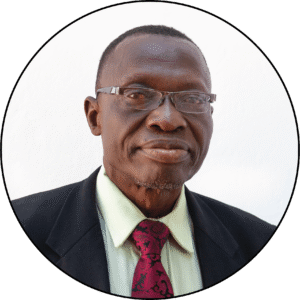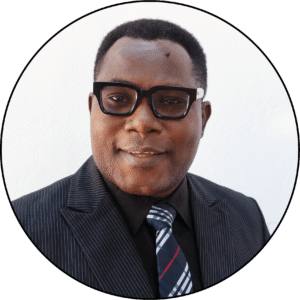Good Governance
Short Course
A course for developing virtuous and effective leadership in Africa’s civil governance space.
Who
If you’re a Nigerian politician or government official at federal, state or local government level, based in or near Jos (Plateau State), Yola (Adamawa State), and Ibadan (Oyo State), and you agree that good leadership depends on ongoing learning and development; you care for your country, region, and continent; or you are open to learning about and engaging perspectives on good governance, consider applying for participation in the inaugural Faith & Freedom Africa (FFA) Good Governance Short Course (GGSC).
What
The FREE FFA GGSC is a three-day pilot short course for qualified public leaders (politicians and/or government officials) in Nigeria to learn about and engage one another on good governance. Course themes include, but are not necessarily limited to:
- Conceptualising good governance
- The state of the continent – Africa’s potential and governance challenges
- Causes of Africa’s governance challenges
- Managing and mitigating Africa’s governance challenges
Further to learning and engaging one another about good governance, course participants will be part of the FFA GSSC project testing phase and have an opportunity to offer insights that may help shape future course offerings in Nigeria and beyond.
AFLAME, a South African-based non-profit organisation working to advance religious freedom, socio-economic development, and inclusive community transformation across sub-Saharan Africa, is behind the vision for the course.
When & Where?
The same three-day FFA GGSC will be presented in Jos (Plateau State) and Yola (Adamawa State). FFA GGSC organisers will communicate precise locations for each of the three short course offerings to successful course applicants.
15-17 September
06-08 October
How?
The FREE three-day pilot short course, limited to 20 participants per course offering, will include expert facilitation and peer-to-peer small group conversations.
AFLAME will provide successful course applicants with access to a digital course reader that includes prescribed materials covering each of the earlier-mentioned themes.
Furthermore, a certificate of completion will be issued to course graduates who submit and obtain a pass mark for their written assignments, and a certificate of attendance to full attendees who fail to achieve a pass mark for their written assignments or choose not to submit a written assignment.
Before one can apply for any one of the three FFA GGSC offerings at the links provided further down, one must first complete the free Faith & Freedom Africa online micro-course.
Read more about this recently launched online course here.
Read more about the FFA GGSC facilitators here.
The two FFA GGSC facilitators, each a patriot, passionate about seeing Nigeria and its citizens prosper, have been trained under Professor Erwin Schwella of the CiviNovus social innovation group in South Africa. They will take course participants on a journey towards fulfilling the FFA GGSC learning outcomes across the four identified syllabus themes and help create an environment in which participating public leaders can engage in discovery about Nigeria, themselves individually, and one another.

Barrister John Tsok
Lead Facilitator
John Tsok is a multifaceted professional with expertise in law, journalism, education, and freedom of religion or belief (FORB). As a practicing lawyer and a passionate advocate for human rights and peace, John has engaged in communal mediation and instructed communities about their basic rights and the value of advocacy. He is a seasoned journalist and former television host, having anchored notable news and current affairs programmes. John lectures on constitutional development, media law, and ethics at the tertiary education level. He is currently registered for a PhD focused on whistleblowing policy in Nigeria as a regulatory mechanism for combating corruption.

Barrister Zachariah Ma’aji
Facilitator
Zachariah Ma’Aji is a human rights activist and private legal practitioner with seventeen-plus years of experience in litigation and corporate law practice. He has utilized his professional calling in the defence of indigent persons in the Northeast of Nigeria, whose rights have been threatened and denied because of their religious beliefs.
Why?
On the one hand, when considering most global good governance indices from a historical and contemporary perspective, African countries have lagged other regions of the world. On the other hand, Africa today is the region of the world that, in several respects, appears to have the greatest potential, if this hasn’t been the case historically.
To properly understand the disconnect or tension between Africa’s tremendous potential and the continent’s realities compared to the rest of the world, and to be part of what narrows the space between where Africa is and where it could be, requires an understanding of and willingness to contribute towards and practice good civil governance. Africa’s existing politicians and government officials are best placed for the latter task.
AFLAME recognises that advancing religious freedom, socio-economic development, and inclusive community transformation across the sub-continent cannot be done as effectively without investing in leadership development at different levels and across different sectors of African society. The FFA GGSC focuses specifically on developing public leaders and encouraging good civil governance because of the reach and impact of political leadership broadly.
Furthermore, AFLAME recognises that good governance depends on freedom of religion or belief, also known as FORB. The connection between good governance and FORB is especially significant in a continent as religious as Africa.
The African Union Agenda 2063 has the following to say about religion on the continent:
- “Our diversity in culture, heritage, languages and religion shall be a cause of strength”;
- “Africa is a continent of people with religious and spiritual beliefs, which play a profound role in the construction of the African identity and social interaction”; and
- “Africa shall be an inclusive continent where no child, woman or man will be left behind or excluded, on the basis of gender, political affiliation, religion, ethnic affiliation, locality, age or other factors.”
The mutually beneficial relationship between good governance and FORB and the significant role of religion in Africa is why the FFA GGSC syllabus gives attention to the meaning and benefits of FORB.
As a country that, for several reasons, has historically been portrayed as ‘Africa’s powerhouse’, and because its people, beginning with those in its northern half, have come under increasing pressure resulting from FORB violations, including in the form of violent religious extremism (VRE), Nigeria is the country designated to host the first FFA GGSC offerings.
For more information, please email the Faith & Freedom Africa Programme Manager at info@faithandfreedom.africa
Apply
Good governance in Nigeria is essential to its stability and growth and that of the economies of West African countries in the Subregion.
Nichodemus O. Ejimabo
For more information about FFA or its projects, please email info@faithandfreedom.africa




